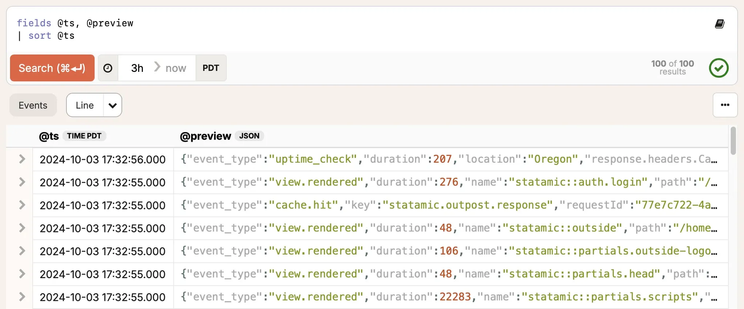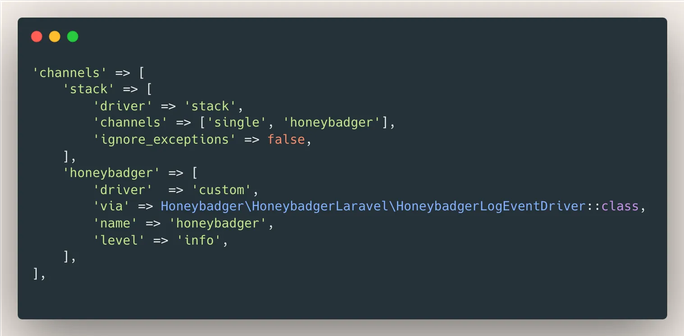Honeybadger’s logging and observability features allow you to query your application events to troubleshoot production issues and get to the root cause. Today, we’re turning it up a notch with a new performance monitoring integration for Laravel! 🚀 🧵
See this thread and/or read the full announcement here:
https://www.honeybadger.io/blog/laravel-performance-monitoring/?utm_source=mastodon&utm_medium=social
#Laravel #PHP #Monitoring #PerformanceMonitoring #Observability #Logging #DevOps

Laravel performance monitoring in Honeybadger
Learn how to improve the performance of your Laravel applications in Honeybadger Insights—our new logging and performance monitoring tool.
Similar to the Rails dashboard we launched a few months back, we’ve added a new performance dashboard for Laravel. Install our composer package, select the Laravel dashboard, and you're done. Here’s what our own Statamic dashboard looks like:
The new Laravel dashboard includes request counts, response distributions, job durations, slow queries, and more. Here’s a complete list of the default widgets:
After you create a dashboard, you don't have to keep the default widgets—we designed Honeybadger dashboards to be customized. Reading the underlying queries is a great way to learn BadgerQL. To see the query and raw data behind any dashboard widget, click "Open in Query Editor."
In the query editor, you can tweak the query, review the results, and update the dashboard:
We’ve also added automatic Laravel instrumentation to our composer package. Once you upgrade to the latest version, you can enable the new instrumentation with a config option (which will soon become the default).
After you enable the Laravel instrumentation, new events and metrics will begin to appear in Honeybadger Insights, and your Laravel dashboard will come alive! ✨
You can also send your own Laravel events to Honeybadger using the `Honeybadger.event` method:
…and send your application logs with our Laravel channel driver:
Finally, if you don't use Laravel—don't worry! We already support Rails, and we'll be instrumenting more frameworks soon. There are many ways you can send logs, events, and metrics to Honeybadger:
https://docs.honeybadger.io/guides/insights/?utm_source=mastodon&utm_medium=social
Honeybadger Insights
Dive into your Honeybadger and application events


